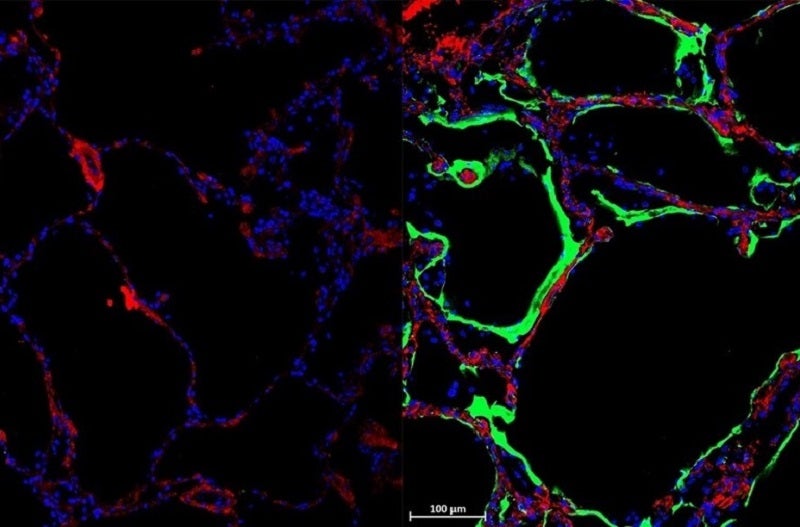
Researchers at the University of Sydney in Australia have announced the discovery of a new protein in the lung that can hinder Covid-19 infection.
The leucine-rich repeat-containing protein 15 (LRRC15) also forms a natural protective barrier in the body of human beings.

Discover B2B Marketing That Performs
Combine business intelligence and editorial excellence to reach engaged professionals across 36 leading media platforms.
It is an inbuilt receptor that attaches to the SARS-CoV-2 virus and drags it away from the target cells.
This research from the University of Sydney is said to offer a pathway for developing new drugs for preventing infection from coronaviruses such as Covid-19 or dealing with lung fibrosis, where the tissue becomes thickened and scarred.
Published in the PLOS Biology journal, the study was led by Professor Greg Neely along with postdoctoral researcher Dr Lipin Loo and PhD student Matthew Waller at the Charles Perkins Centre and the School of Life and Environmental Sciences.
Neely said: “Alongside two other groups, one at Oxford, the other at Brown and Yale in the USA, we found a new receptor in the LRRC15 protein that can stop SARS-CoV-2. We found that this new receptor acts by binding to the virus and sequestering it, which reduces infection.

US Tariffs are shifting - will you react or anticipate?
Don’t let policy changes catch you off guard. Stay proactive with real-time data and expert analysis.
By GlobalData“We can now use this new receptor to design broad-acting drugs that can block viral infection or even suppress lung fibrosis.”
LRRC15, which is a coronavirus receptor, does not support infection. However, it can bind to the virus and immobilise it while preventing other vulnerable cells from infection.
The study authors are developing two Covid-19 strategies with the help of LRRC15 that is expected to work across several variants.
The researchers added that the presence or lack of the protein indicates the severity of Covid-19 infection.
As part of the study, the researchers screened human cell cultures for genes and investigated Covid-19 patients’ lungs.




